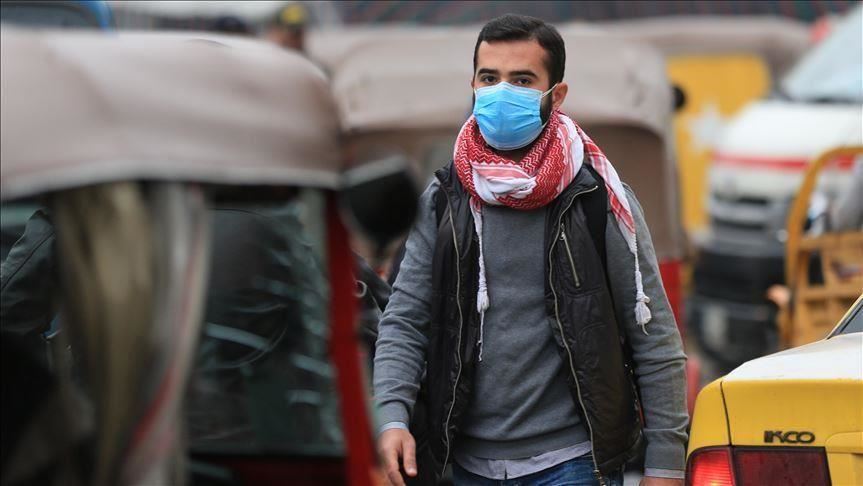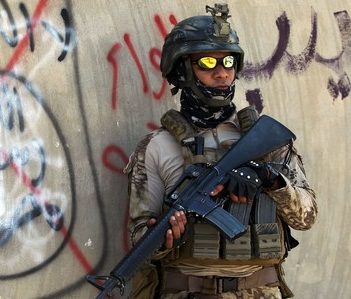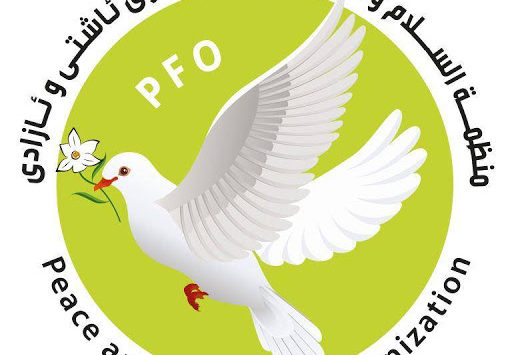Implementation of curfew to fight COVID-19 proves difficult in Iraq
Iraq is working hard to limit the spread of the novel coronavirus, which had infected 382 people in the country as of March 26, killing 36. However, people’s refusal to comply with government instructions threatens to exacerbate the health situation.
The Baghdad Operations Command warned residents of the capital March 25 to abide by the 24-hour curfew imposed last week or be ready to face severe consequences. The command announced March 24 that 1,542 individuals had been arrested and 557 vehicles seized since March 17.
Iraq has formed a crisis task force, based on orders from the Cabinet, to fight the COVID-19 outbreak. As soon as it was formed, the task force made decisions to suspend schools and universities and reduce the working hours of government institutions. However, the task force felt that this was not enough and imposed a curfew from March 17-24, which was extended for another week and is expected to be extended again.
The curfew coincided with the commemoration of the death of the seventh Shiite imam; thousands of Iraqi Shiites usually flood to Musa al-Kadhim’s burial site near Karkh in Baghdad for the occasion.
Although clerics such as Grand Ayatollah Ali al-Sistani said the rituals of the visit could be done remotely while staying at home, by praying and reciting the visit supplications, thousands of worshippers still walked to the burial site in Kadhimiya in Baghdad.
Along the road leading to the burial site, convoys of vehicles and people erected tents of thick fabric offering food and beverage, in addition to resting spots for Shiite visitors.
Some security forces that attempted to stop the tents from being set up were threatened and even attacked, with some suffering minor injuries March 21.
Media and activists shared a video showing people seeking to visit the Shiite burial site pushing through security barriers, several of which fell due to the surge of the crowds.
Many visitors said they were not afraid of the coronavirus because the imam would protect them from any imminent threat.
Shiite leader Muqtada al-Sadr’s tweets did not help Iraqi authorities’ efforts to enforce the curfew and prevent mass gatherings; his followers performed Friday prayers in three provinces, and 3,000 people attended, including children.
Sadr was widely criticized for not directly urging his followers to abide by the curfew, but he defended himself in a long statement.
Following the noncompliance with the curfew, the World Health Organization (WHO), the task force and the Iraqi Ministry of Health issued calls for the prevention of gatherings and for citizens to comply with the curfew.
AlJawadain Holy Shrine, which is the institution responsible for managing Imam Kadhim’s burial site, sensed the risk of being flooded by visitors and called on the security forces and government to enforce the curfew.
On March 20, caretaker Prime Minister Adel Abdul Mahdi had to call on the security forces to “ban the influx of visitors to cities and holy shrines during curfew because they oppose health regulations, and to prevent gatherings and marches for any reason.”
On the same day, the Supreme Judicial Council, which is the highest judicial authority in Iraq, called on security forces to take “legal measures against anyone who violates the orders of the crisis task force.” It also demanded “the arrest of any violators of curfew and anyone who undermines or encourages others to undermine the coronavirus threat.”
Security forces launched an arrest campaign against violators, and confiscated civilian vehicles and motorcycles of people who did not comply with the orders.
However, violations of the curfew remain rampant, especially in Rusafa, a densely populated area of Baghdad.
On March 21, Baghdad Governor Mohammad Jaber Ata threatened to force Baghdad residents who are not complying with the task force’s orders into quarantine.
A mobile patrol officer who did not wish to be identified told Al-Monitor, “Some extremists affiliated with armed groups are threatening to harm security forces if they are not allowed to move around or violate curfew.”
The officer said, “We are trying to control the situation and empty the streets, but it seems almost impossible, as many are violating the orders, and most of them belong to large tribes from Sadr City.”
Officials say the coming two weeks are critical, and there are concerns that the coronavirus might spread more widely because so many people and their convoys gathered on the road to Imam Kadhim’s shrine.
Iraq is facing a real health crisis due to a huge shortage in health professionals and a lack of infrastructure and modern medical equipment.
A doctor at the capital’s Medical City complex who did not want to be identified told Al-Monitor, “If the virus spreads, we will face tough choices, and we risk losing many lives. We have unconfirmed information about many infected cases in Sadr City, following the visit to Imam Musa al-Kadhim’s shrine.”
On the evening of March 22, the Baghdad Operations Command announced new measures to enforce the curfew on citizens by closing entries into residential areas, except for two entrances for the entry of food supplies to Sadr City.
Mohammad Nasr Dali, member of the federal parliament’s defense and security committee, said, “Security forces alone will not be able to do much because of the large surface area of Baghdad and population density.”
He told Al-Monitor, “Citizens have to realize the risk of the coronavirus and its fatal impact on their families and loved ones.”
Iraq has extended the curfew to all provinces of the country and suspended all travel until March 28. The patrol officer hopes citizens will abide by the curfew this time, while the doctor hopes hospitals will not be overwhelmed with coronavirus cases.



